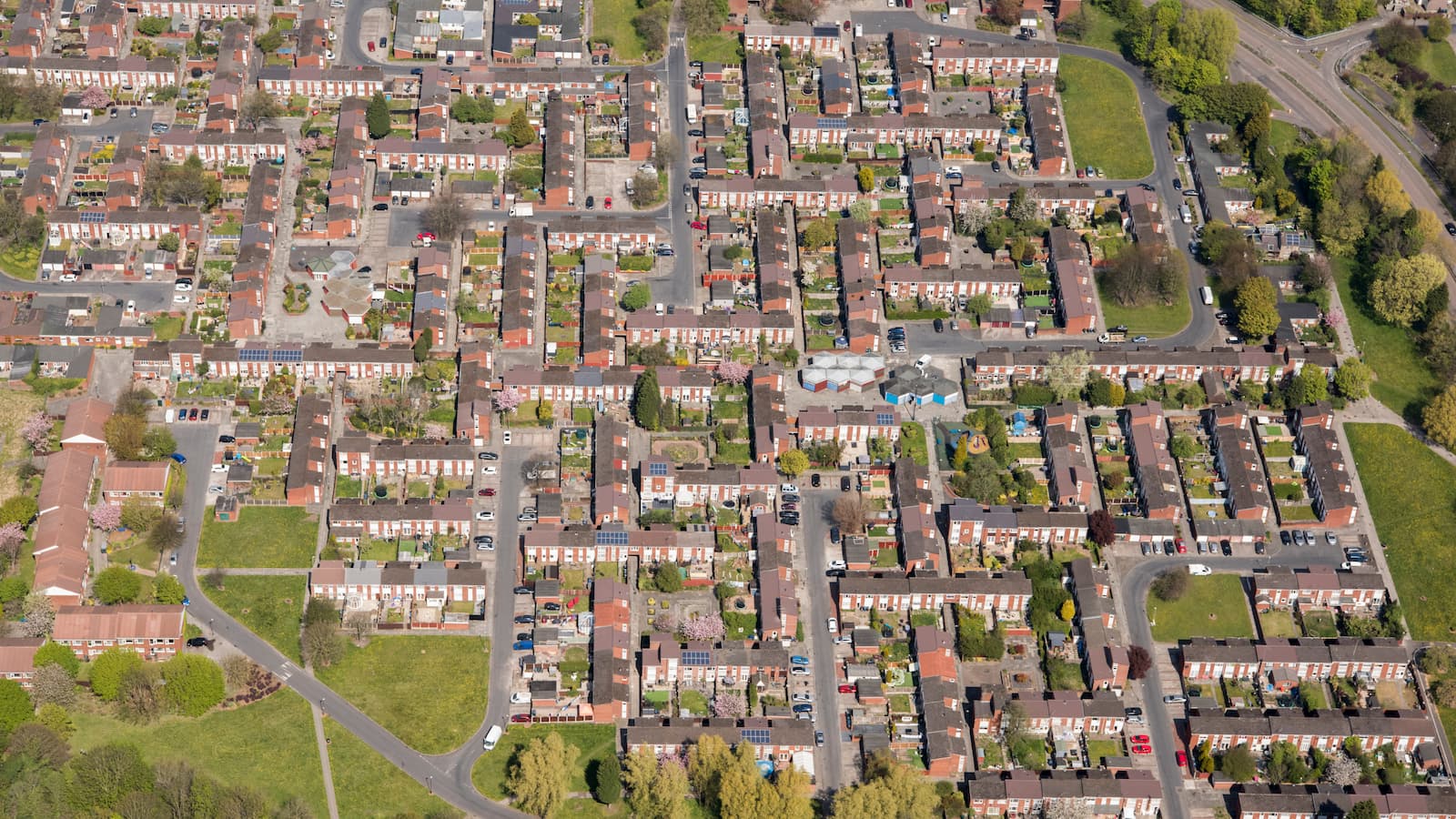How do the political parties compare on housing for the General Election 2024?
With there being a housing shortage we reveal how each of the UK political parties are planning to tackle the housing crisis

Bring your dream home to life with expert advice, how to guides and design inspiration. Sign up for our newsletter and get two free tickets to a Homebuilding & Renovating Show near you.
You are now subscribed
Your newsletter sign-up was successful
Housing is set to be a pivotal issue in the upcoming general election, as the UK faces a growing shortage of homes.
Numerous challenges affect those looking at building a house, including restrictive planning regulations, labour shortages, and limited development sites are impeding house construction efforts. Coupled with reduced affordability options, these factors have contributed to the average age of first-time buyers rising to 34 years old.
In this analysis, we delve into the housing pledges of each major political party and examine how they propose to address these obstacles, aiming to alleviate the housing crisis affecting the UK today.
Conservative's housing policy
The Conservative Party has pledged to deliver 1.6 million homes by building more on brownfield sites, abolishing nutrient neutrality rules and lifting Section 106 burdens.
The Conservative Manifesto said they will deliver record numbers of new homes on brownfield land by fast-tracking new homes through planning reforms, targeting the 20 largest cities for development.
They also promise to give local communities more control over the design of new homes thanks to design codes that they believe will make homes energy-efficient and eco-friendly whilst continuing to protect the Green Belt.
The Conservatives have also said they will permanently increase the Stamp Duty threshold for first-time buyers to £425,000, up from £300,000 and introduce a new Help to Buy scheme, offering first-time buyers an equity loan of up to 20% for new build homes allowing them to purchase a home with just a 5% deposit.
Bring your dream home to life with expert advice, how to guides and design inspiration. Sign up for our newsletter and get two free tickets to a Homebuilding & Renovating Show near you.
Labour's housing policy
Labour's manifesto promises to build 1.5 million houses if they are elected and will aim to do this by reforming planning laws.
The party's policy document stated they would bring back mandatory housing targets through the National Policy Planning Framework and that mayors would have "stronger powers over planning" whilst also giving local communities a bigger voice over how houses will be built in their area.
Labour has also promised to give a "planning passport" in order to deliver high-density housing on brownfield sites as well as building on "ugly" areas of the green belt termed the "grey belt".
Deputy Leader Angela Rayner said Labour will reform Section 106 agreements to ease the restrictions on gaining planning permission whilst bringing in a wave of "New Towns" near big cities to ease the housing crisis.
They plan to give first-time buyers "first dibs" on newly built homes with a government-backed mortgage guarantee aimed at reducing the deposit needed, similar to the Help to Buy scheme.
Reform's housing policy
In their 'Our contract with you' draft manifesto, the Reform Party outlines plans to fast-track planning and provide tax incentives for developing brownfield sites, including unused offices and vacant high street properties.
They propose reviewing the need for Section 106 contributions for infrastructure such as schools and surgeries, which they claim hinder house building.
The Reform Party also aims to encourage the adoption of new construction technologies, promoting modern methods like modular construction and smart infrastructure.
Additionally, they plan to boost the local skilled labour force by introducing apprenticeships and vocational courses to train more qualified workers, reducing reliance on foreign labor.
Liberal Democrats' housing policy
The Liberal Democrats manifesto promises to raise standards for all new homes to ensure they are energy-efficient, carbon-neutral, and built to a high standard.
They are committing to building 380,000 homes a year across the UK through new garden cities and community-led developments.
The manifesto proposes allowing councils to purchase land for housing developments, giving them more power to construct homes in their constituencies and the ability to end Right to Buy in their areas.
Additionally, they plan to reform the Land Compensation Act 1961 to base land purchases on current use rather than speculative values. The Liberal Democrats also promise to restrict the number of second homes and holiday lets, prioritising housing for locals.
Green Party's housing policy
The Green Party manifesto emphasised their commitment to building the right homes in the right places at the right prices, requiring new builds to meet Passivhaus standards.
They also plan to invest in refurbishing existing buildings to reduce demolition and new construction, cutting pollution and energy costs.
The Greens aim to ensure new planning designs incorporate ecologically sustainable storm water and flood prevention measures. They also plan to revise building regulations to account for the carbon footprint of construction.
Additionally, they want to implement policies and funding to improve air filtration systems and protect indoor air quality, especially in areas near main roads.
Scottish National Party's housing policy
The Scottish National Party (SNP) have yet to publish their manifesto but they have helped build 96,750 affordable homes since coming to office and have promised to build 100,000 more by 2032.
They say this will be done through £3.5 billion investment targeting the building of new build homes and retrofitting and refurbishing the existing unused housing stock.
However, in May 2024 the SNP announced a national housing emergency due to a severe lack of affordable housing, which they blamed on UK Government budget cuts, leading to them calling for its capital budget cut to be reversed.
Plaid Cymru's housing policy
Plaid Cymru's manifesto promises to update the planning system that they claim favours large developers who prioritise profit over community needs.
They plan to increase the number of bungalows for Wales' ageing population by aligning the planning system with local needs rather than developers' interests.
This includes maintaining up-to-date information on housing needs and ensuring developments reflect these needs, supported by funding to help local governments enforce planning decisions.
They also claim Local Development Plans will not be imposed on local planning authorities without their support.

News Editor Joseph has previously written for Today’s Media and Chambers & Partners, focusing on news for conveyancers and industry professionals. Joseph has just started his own self build project, building his own home on his family’s farm with planning permission for a timber frame, three-bedroom house in a one-acre field. The foundation work has already begun and he hopes to have the home built in the next year. Prior to this he renovated his family's home as well as doing several DIY projects, including installing a shower, building sheds, and livestock fences and shelters for the farm’s animals. Outside of homebuilding, Joseph loves rugby and has written for Rugby World, the world’s largest rugby magazine.
